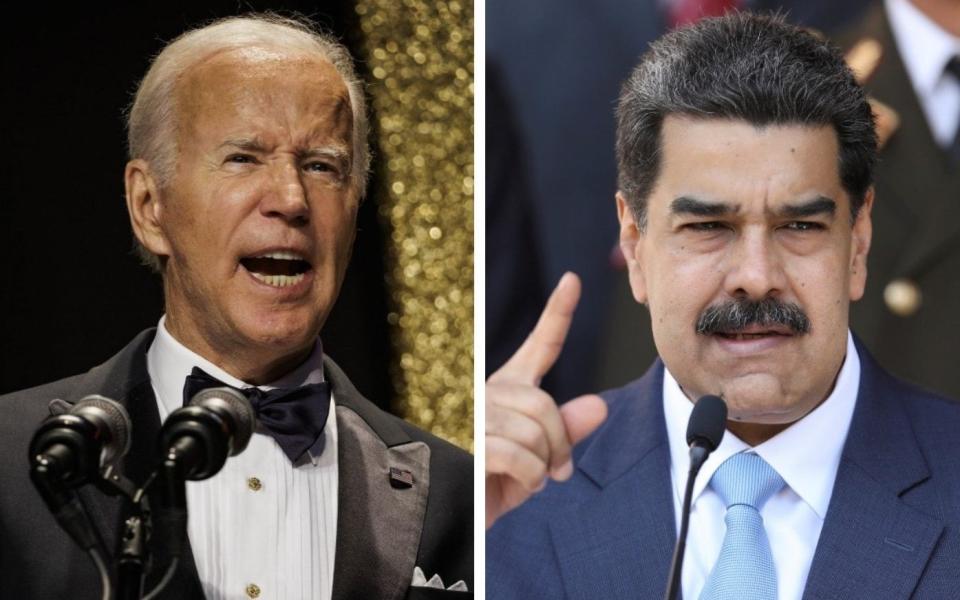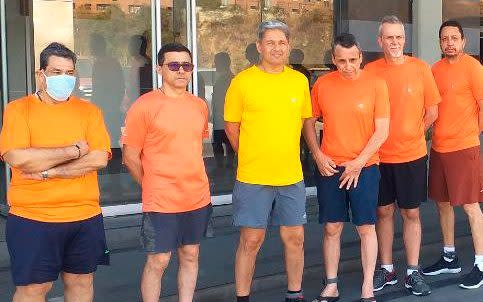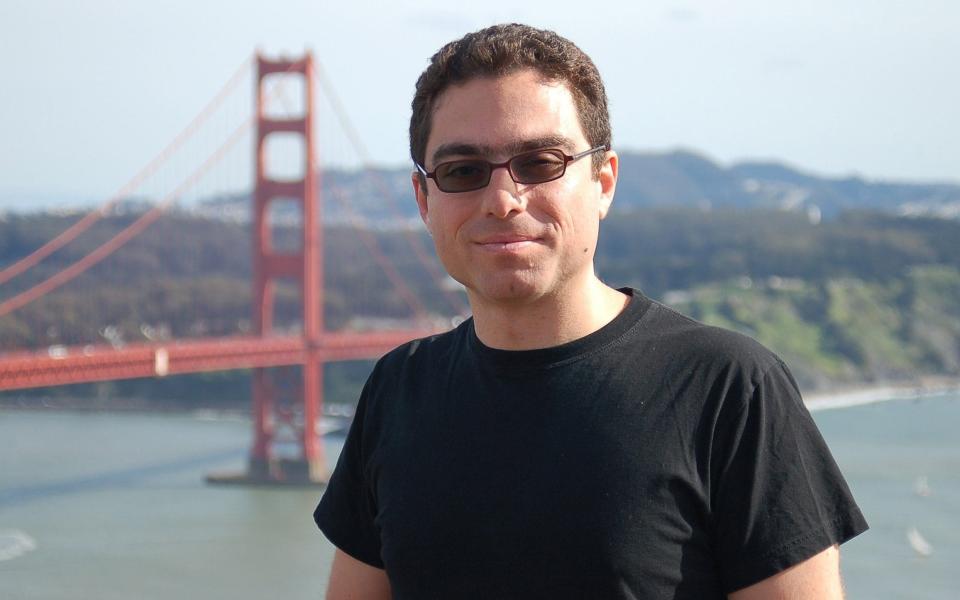‘Appeaser’ Joe Biden agrees to release Venezuelan leader’s relatives in prisoner swap

Joe Biden was under fire for “appeasing” Venezuela’s president Nicolas Maduro after he agreed to release two nephews of the authoritarian leader’s wife in exchange for seven Americans.
Caracas freed the seven detained Americans, including five oil executives, in exchange for two men known as the “narco nephews”, who were jailed in the US for drug trafficking.
Marco Rubio - the Republican senator of Florida, where many Venezuelans have fled in recent years - said:
Today Biden released two convicted drug dealer nephews of #Venezuela dictator Maduro in exchange for 7 innocent Americans being held hostage
Another Biden appeasement that will result in more anti-U.S. dictators taking more innocent Americans hostage in the future— Marco Rubio (@marcorubio) October 1, 2022
It was the latest development in a concerted effort by the US president to secure releases of Americans held around the world. That has led to criticism of him accepting the idea of handing over convicted criminals in exchange.
Six months ago, Mr Biden agreed to swap Konstantin Yaroshenko, a Russian pilot jailed on drugs charges, for Trevor Reed, an American held by Russia.
He has also reportedly offered to release Viktor Bout, an arms dealer, in exchange for two Americans held by Russia - Brittney Griner, the professional basketball player, and Paul Whelan, a businessman.

A senior US official said that Mr Biden had taken a “painful decision” to authorise the Venezuela prisoner swap.
He granted clemency for Franqui Flores and his cousin Efrain Campo, both nephews of Cilia Flores, the wife of Mr Maduro.
The cousins were arrested in 2015 in a US sting operation in Haiti.
They were later sentenced to 18 years in prison in New York for plotting to smuggle hundreds of kilos of cocaine into the US.
Americans freed in the deal included five employees of Houston-based oil company Citgo - Tomeu Vadell, Jose Luis Zambrano, Alirio Zambrano, Jorge Toledo and Jose Pereira.
They were lured to Venezuela in 2017 to attend a meeting and then hauled away from a conference room by masked security guards.
Also released was Matthew Heath, a former US Marine arrested at a roadblock in Venezuela in 2020, and Osman Khan, a Florida man who was arrested in January.
The exchange - which had been arranged during months of secretive talks - took place on Saturday, with the prisoners all being flown to St Vincent and the Grenadines. The Caribbean island is ruled by Ralph Gonsalves, an ally of Mr Maduro.
In a statement, Mr Biden said that the Americans would “soon be reunited with their families and back in the arms of their loved ones where they belong”.

He vowed to “deliver on my administration’s unflinching commitment to keep faith with Americans held hostage and wrongfully detained all around the world”.
Mr Biden added: “To all the families who are still suffering and separated from their loved ones who are wrongfully detained, know that we remain dedicated to securing their release.”
A US official said it became clear during talks that the release of the “narco nephews” was “essential to securing the release of these Americans”.
The official said: “The president made a tough decision, a painful decision, to offer something the Venezuelans have actively sought.”
Juan Guaido, the Venezuelan opposition leader, said it was further “proof” that “a criminal regime operates in Venezuela, linked to drug trafficking”.
The US is one of 60 countries that refused to recognise Mr Maduro as the legally-elected president of Venezuela after a widely disputed election in 2018.

However, Russia’s invasion of Ukraine and subsequent pressure on global energy supplies has led to political developments.
In March, a high-level US delegation went to Caracas to meet with Mr Maduro.
Meanwhile, the United Nations said that an Iranian-American blocked from leaving Iran can now do so, and that his son was released from detention.
Following an appeal from Antonio Guterres, the UN secretary-general, Baquer Namazi, an 85-year-old former Unicef official, was “permitted to leave Iran for medical treatment abroad”.
Siamak Namazi, his son, was released from detention, said a UN spokesman.
The US indicated that the developments in Iran and Venezuela were coincidental.

 Yahoo Movies
Yahoo Movies 